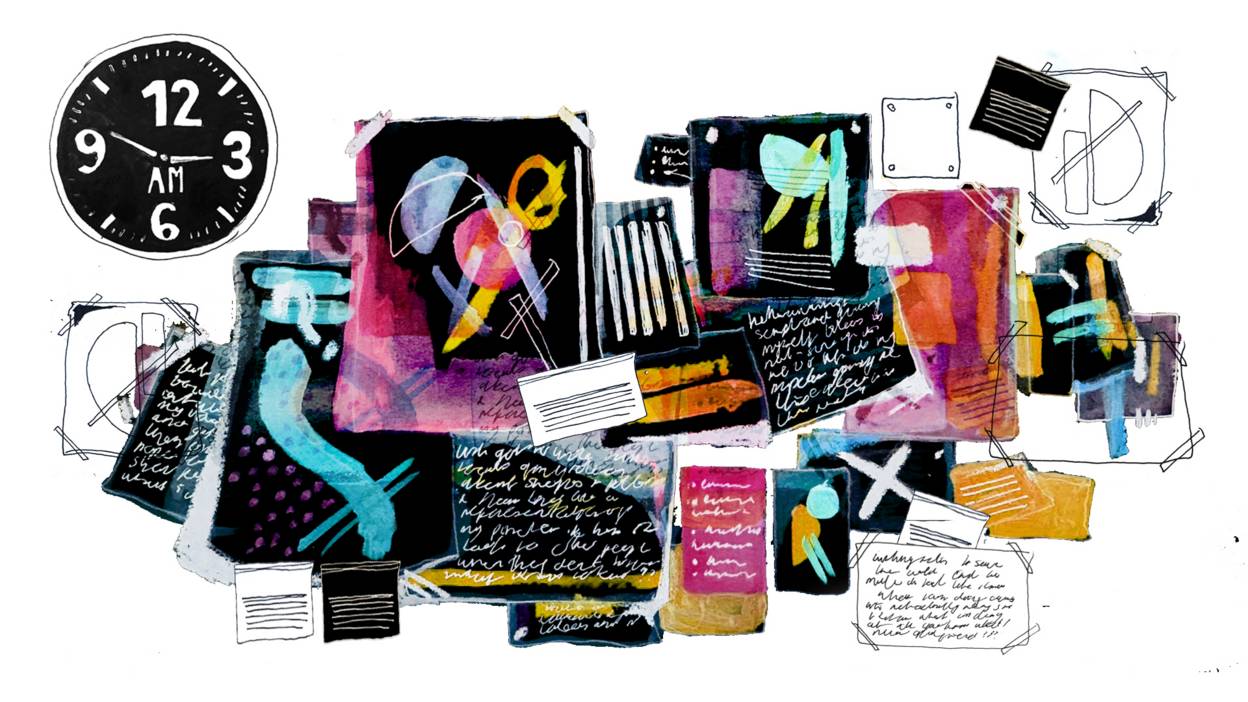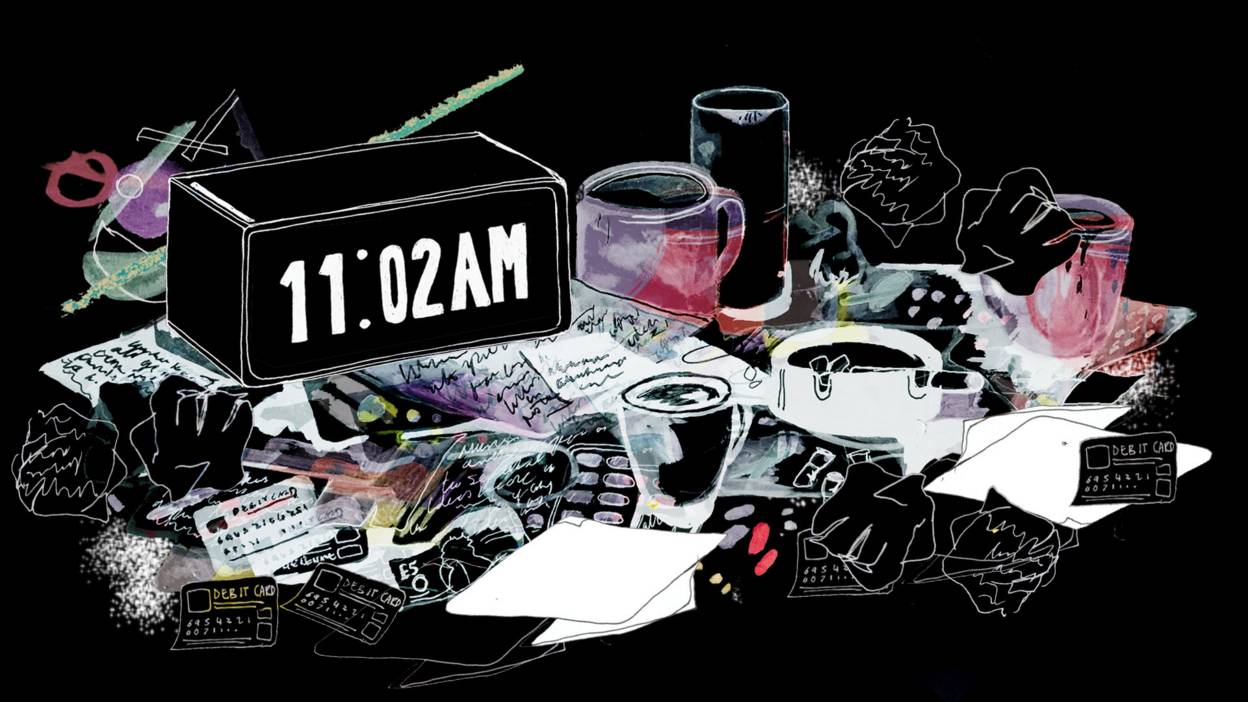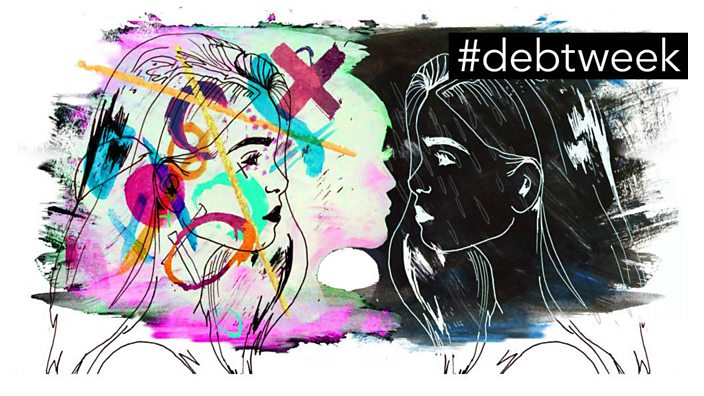Enlightening ......... How my bipolar landed me in crippling debt
How my bipolar landed me in crippling debt
'I felt terribly embarrassed and an absolute failure for having to go back to live with mum and dad'
As part of BBC Three's Debt Week, Katie Conibear talks about the impact the condition has had on her life.
Before my diagnosis of bipolar, I thought my rapid and extreme mood swings were just me, just a part of my personality.
Half the time I hated myself, and the other half I thought I was the most incredible person in the world. It’s a bit more complicated than that, but you get the idea.
After 10 years of trying to figure out why, totally sober, I suddenly went from pole dancing in a nightclub on my own to wanting to drive my car into a tree, I was given the diagnosis of bipolar. I realised that the love/hate relationship I had wasn’t with myself, but with my bipolar disorder.
Bipolar disorder effects 1-2% of the population, with 5% believed to be somewhere on the spectrum. It is a severe mental health condition where you alternate between manic highs and depressive lows. It’s so much more than just being happy or sad. Some people, like me, also suffer from hallucinations or delusional thinking.
 Daisy Hardman
Daisy Hardman
When I’m in the grips of mania, I love my bipolar. The euphoria I feel is like no other drug. The feeling is addictive and I never want it to end. The mania is unbelievably epic, like I’m living in a blockbuster movie and I’m the star. The whole universe revolves around me.
Continually going through my head are thoughts that instil an enormous, gratifying confidence: ‘I’m the best at everything!’ ‘I can do anything, be anyone!’ ‘Nothing can touch me. I’m invincible!’
I am a creative person naturally, and when I’m manic all I want to do is create. I get so much done it’s not even funny. Ideas will constantly pop into my head, and I know I have to act on them there and then or they will disappear. So I will find myself sketching and writing through the night, and then still having more than enough energy to do a full day's work.
When I’m stable or depressed, I often find myself daydreaming about these aspects of mania. I find myself missing it. And I feel very guilty and incredibly stupid for doing this, but at times I have stopped taking my medication in an attempt to find my way back.
 Daisy Hardman
Daisy Hardman
What I hate about bipolar, above anything else, is what I call my mania hangover. I realise I’ve spent far too much, but this is over a period of months, not just one or two nights. I’ve found myself in crippling debt more than once, the first time meaning I had to move back home with my parents.
I felt terribly embarrassed and an absolute failure for having to go back to live with mum and dad, but luckily I had that option. After the weeks or months of mania, I start to see with clarity, and I realise I’ve done things that I’ll regret for years to come.
I see how much stress I put family and friends through with my unpredictable, sometimes rageful emotions. From constantly being full of energy and unable to sleep, I’ve become emotionally and physically exhausted. I’ve been running on empty for weeks and not even noticed. All I want to do is to become a hermit and hide from the world in bed and eat junk food.
Obviously, I hate the depression, which is usually part of the whole mania hangover. The juxtaposition between the mania and depression is ridiculous. I’ve heard the description of ‘it’s like living on a rollercoaster’, but it’s too simplistic a description. Rollercoasters for me are fun, and the lows of acute depression are far from fairground ride fun and games. Depression, just like mania, takes complete hold of you, and won’t let go.
I knew I needed an outlet to deal with these complex feelings, so I started a blog a few years ago. It gives me an outlet when I find it hard to articulate what it’s like living with bipolar. I also attend a Bipolar UK support group, which has made me feel that I’m not completely alone in all this.
I’ve begun to accept my diagnosis and live with it; I see a psychiatrist regularly, have medication, which, at the moment, is a good fit for me, and hope to have some therapy coming up soon. Although I know my relationship with bipolar will always be difficult, I’m always going to love and hate it.
If you've been affected by mental health issues, these organisations may be able to help.
Illustrations by Daisy Hardman






Comments